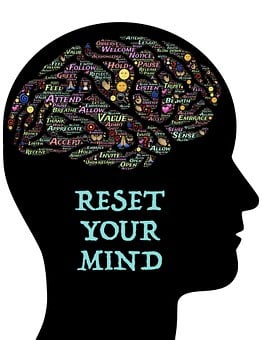 There have been multiple books and articles published recently on the general topic of mindset. It comes down to mindset are said to either being fixed or one of growth.
There have been multiple books and articles published recently on the general topic of mindset. It comes down to mindset are said to either being fixed or one of growth.As you probably know, a person with a fixed mindset believes certain attributes such as intelligence, talent, or even ability to do math is fixed and cannot be changed. They believe talent is set and you cannot develop it. This is the mindset I often run across in both students and adults when they talk about math.
Its expressed often as "I can't do math." or "I don't have the ability." So often if the parent says this enough, students arrive at school with the same attitude. Its the standard excuse for why someone is not good at math.
On the other hand, a growth mindset indicates the person believes attributes such as intelligence or ability can be learned with hard work and dedication. Talent is not enough. I see students who will practice basketball for hours on end but are unwilling to try in math because they are convinced they do not have the talent for it.
Is it possible the closed mindset of "I can't do math" does not mean they are unwilling to learn but its more they don't know how to find the answer a problem? Is it possible they don't know how to ask the right questions? Perhaps we need to teach students to articulate their questions rather than remaining silent.
So how does one go about helping students change their mindset from fixed to open? There are ways. One thing is to change the classroom environment to one of encouragement where they can work on complex and interesting problems. Allow them to try their ideas, fail, and retry. Where they learn it is acceptable to fail because failure is a part of learning.
According to something I read, teachers who encourage multiple attempts at solving a problem are more likely to have students with the growth mindset. It has also been suggested a teacher only provide help when they are asked and students should have the opportunity to resubmit work.
Too many students who struggle solving problems, are likely to decide they are not a math person. I have students who would rather fail than try because they've decided they are unable to do the problem. I have two signs hanging on my wall. One sign says "I haven't practiced this enough." while the other states "I haven't learned this yet." Both important phrases are important in my opinion because they reinforce the idea they can learn.
In addition, people often think mathematics is composed of calculations rather than seeing it as a topic filled with patterns. Consequently, they think those who can complete calculations the fastest are the best in math. In fact, most good mathematicians are slow because they stop and think about the problem. I think if we can convince students its O.K. to take it slow and do a good job, this might help students change their thinking.
It is important to teach mathematics using open questions such as find as many rectangles as you can with an area of 24 square inches rather than asking what is the area of a rectangle that is 12 by 2. The first problem has multiple answers and it requires students to think deeply, using their own ideas rather than if they have to answer the second one.
These are a few things to think about when trying to help students change their mindset. I don't know if we can change everyones mindset but we can try.
Let me know what you think. I'd love to hear from everyone.
No comments:
Post a Comment